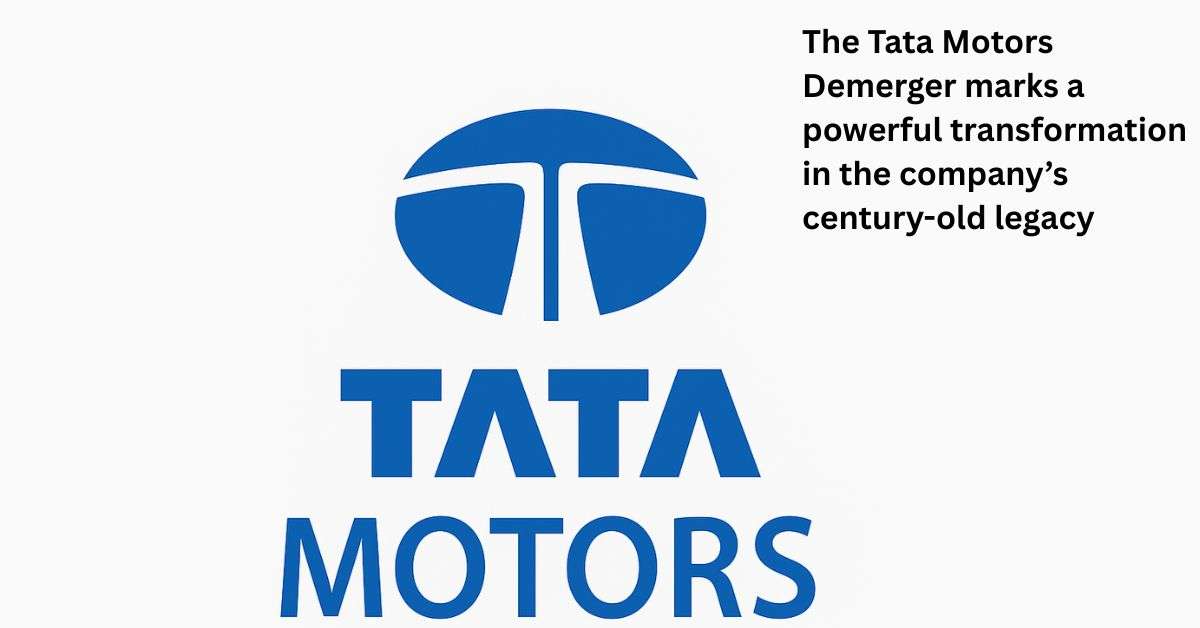The Nifty50 Index is more than just a list of the top 50 companies traded on the National Stock Exchange (NSE) of India; it’s a benchmark of the Indian economy. These companies are leaders in their respective industries, and their combined performance gives investors insight into the broader market. The Nifty50 is heavily relied upon by mutual funds, ETFs, and institutional investors as it represents the market’s pulse.

Importance of Nifty50 Index Rebalancing in the Indian Stock Market
Why does the Nifty50 matter so much? For starters, it covers a broad spectrum of sectors—from banking to IT to consumer goods—giving a comprehensive snapshot of market performance. Additionally, any stock included in the Nifty50 sees an immediate boost in visibility, liquidity, and often, investor confidence. Being part of this index means a company is perceived as a leader, which can significantly influence its stock price.
Nifty50 Index Rebalancing: An Overview
What is Nifty50 Index Rebalancing ?
Indices rebalancing is the process of adjusting the constituents of a stock index, such as the Nifty50, to ensure that it continues to reflect the market accurately. This can involve adding new companies, removing underperforming ones, or adjusting the weights of the current constituents.
Why is Nifty50 Index Rebalancing Important?
Rebalancing is crucial because it ensures that the index remains representative of the market’s top-performing companies. Without periodic adjustments, the index could become outdated, including companies that no longer lead their sectors or omitting rising stars that better represent current market trends.
How Does Nifty50 Index Rebalancing Affect Stocks?
When a stock is added to a major index like the Nifty50, it often experiences a surge in demand. This is because many investment funds and ETFs track the index and must purchase shares of the newly included companies to maintain alignment with the index. Conversely, stocks that are removed from the index may see a decline as these funds sell off their shares.
JM Financial’s Anticipation
Overview of JM Financial’s Report
In a recent report, JM Financial—a leading brokerage firm—shared its expectations for the upcoming Nifty50 Index Rebalancing in August 2024. The report highlights that Trent Ltd and Bharat Electronics Ltd (BEL) are likely to be included in the Nifty50 index, while LTIMindTree Ltd and Divis Laboratories Ltd might be removed.
Predicted Changes in the Nifty50 Index
The Nifty50 Index Rebalancing exercise, expected to take effect on September 30, 2024, could bring significant shifts in market dynamics. Trent Ltd, a retail powerhouse, and BEL, a leader in defense electronics, are poised to replace LTIMindTree, an IT services company, and Divis Laboratories, a pharmaceutical company. This prediction is based on the average free-float market capitalization from February 1 to July 31.
Implications of the Anticipated Changes
If JM Financial’s predictions hold true, Trent Ltd and BEL could witness substantial inflows of $412 million and $392 million, respectively. This could enhance their market position and drive further growth. On the other hand, the predicted outflows for LTIMindTree and Divis Laboratories could impact their stock performance negatively.
Trent Ltd: A Rising Star
Company Overview
Trent Ltd, a part of the Tata Group, is a prominent player in the retail sector. The company operates well-known retail chains such as Westside and Zudio, catering to a broad customer base across India.
Recent Performance and Growth
Trent Ltd has shown remarkable growth in recent years, expanding its footprint across the country. The company’s strong performance is reflected in its financials, with consistent revenue growth and profitability.
Reasons for Potential Inclusion in Nifty50 Index Rebalancing
Trent Ltd’s potential inclusion in the Nifty50 can be attributed to its robust financial performance, increasing market share, and strategic expansions. The company’s strong free-float market capitalization positions it as a strong candidate for the index.
Bharat Electronics Ltd (BEL): A Defense Giant
Company Overview
Bharat Electronics Ltd (BEL) is a government-owned company specializing in defense electronics. It plays a critical role in India’s defense sector, supplying advanced electronic products and systems to the Indian Armed Forces.
Recent Performance and Growth
BEL has been performing exceptionally well, with a focus on innovation and expanding its product portfolio. The company has secured several high-value contracts, boosting its revenue and market capitalization.
Reasons for Potential Inclusion in Nifty50 Index Rebalancing
BEL’s inclusion in the Nifty50 is likely due to its strategic importance, strong financials, and growing market capitalization. As India continues to prioritize defense modernization, BEL’s role becomes increasingly significant, making it a valuable addition to the index.
Impact of Potential Inclusions
Expected Market Inflows for Trent Ltd and BEL
The inclusion of Trent Ltd and BEL in the Nifty50 could lead to significant market inflows, estimated at $412 million for Trent and $392 million for BEL. This influx of capital can drive up stock prices and enhance investor confidence.
Historical Performance of Newly Included Stocks
Historically, stocks included in the Nifty50 tend to experience positive price movements following their inclusion. This trend is driven by increased demand from index-tracking funds and heightened investor interest.
Exclusions: LTIMindTree Ltd and Divis Laboratories Ltd
Overview of LTIMindTree Ltd and Divis Laboratories Ltd
LTIMindTree Ltd is a prominent IT services company, while Divis Laboratories Ltd is a leading pharmaceutical firm. Both have been part of the Nifty50 for several years, representing their respective sectors.
Reasons for Predicted Exclusion from Nifty50
The predicted exclusion of LTIMindTree and Divis Laboratories is primarily due to their declining free-float market capitalization relative to other companies. This decrease has made them less competitive compared to rising stars like Trent and BEL.
Market Reaction to Exclusions
Stocks that are excluded from the Nifty50 often face selling pressure as index-tracking funds adjust their portfolios. This can lead to a decline in stock prices and investor sentiment.
The Role of Free-Float Market Capitalization
Understanding Free-Float Market Cap
The total market value of shares that are traded publicly is known as free-float market capitalization. It is a critical factor in determining a company’s inclusion in major indices like the Nifty50.
How it Influences Nifty50 Inclusion
The Nifty50 index includes companies with the highest free-float market capitalization, ensuring that it represents the largest and most liquid stocks in the market. A company’s ability to maintain or grow its free-float market cap is crucial for its continued inclusion in the index.
The Calculation Period: February 1 to July 31
For the September Nifty50 Index Rebalancing, the index provider considers the average free-float market capitalization between February 1 and July 31. This period is crucial for companies to demonstrate their market strength and secure their place in the index.
The Impact on Investors
How Index Changes Influence Investment Strategies
Nifty50 Index Rebalancing can significantly impact investment strategies, particularly for funds that track the Nifty50. Investors often adjust their portfolios in anticipation of these changes to capitalize on potential gains or mitigate risks.
Potential Opportunities and Risks
While the inclusion of new stocks can present opportunities for growth, it also carries risks. Investors need to carefully analyze the potential impact of index changes on their portfolios and make informed decisions.
Jio Financial Services and Zomato: The Missed Opportunities
Why Jio Financial Services and Zomato Were Not Included
Despite having a higher free-float market capitalization than Trent and BEL, Jio Financial Services and Zomato were not included in the Nifty50. This exclusion is due to their absence from the Futures & Options (F&O) segment, a requirement for index inclusion.
The Role of F&O Segment Exclusion
The Nifty50 index only includes stocks that are part of the F&O segment, ensuring that the index remains liquid and tradable. The exclusion of Jio Financial Services and Zomato highlights the importance of this criterion.
Future Possibilities for Inclusion
If Jio Financial Services and Zomato are eventually included in the F&O segment, they could be strong candidates for future inclusion in the Nifty50. This potential inclusion would depend on their continued market performance and free-float market capitalization.
Historical Context: Past Nifty50 Rebalancing Trends
Analyzing Previous Nifty50 Index Rebalancing Exercises
Looking at past Nifty50 Index Rebalancing exercises can provide valuable insights into the market’s reaction to index changes. Historically, stocks that are added to the Nifty50 tend to outperform those that are removed, at least in the short term.
Lessons Learned from Past Changes
One key lesson from past Nifty50 Index Rebalancing exercises is the importance of market perception. Companies that are perceived as leaders in their industries are more likely to be included in the index, while those that fall behind may be excluded.
Market Speculations and Reactions
Analyst Opinions on the Anticipated Changes
Market analysts have been speculating on the potential impact of the predicted changes in the Nifty50. Many believe that the inclusion of Trent and BEL could boost market sentiment, while the exclusion of LTIMindTree and Divis Laboratories might lead to short-term volatility.
Investor Sentiment Ahead of the Rebalancing
Investor sentiment is mixed ahead of the rebalancing. While some are optimistic about the potential inclusions, others are cautious, given the potential outflows for the excluded stocks. Overall, the market is likely to experience heightened activity as the Nifty50 Index Rebalancing date approaches.
What’s Next for the Nifty50?
The Significance of September 30, 2024
The changes to the Nifty50 index will take effect on September 30, 2024. This date marks the beginning of a new chapter for the companies involved, with significant implications for their stock performance and investor sentiment.
Possible Future Changes in the Index
Looking ahead, the Nifty50 index will continue to evolve as market conditions change. Future Nifty50 Index Rebalancing exercises may see new companies rise to prominence, while others may fall out of favor. Investors should stay informed and be prepared for these changes.
Conclusion
In conclusion, the anticipated Nifty50 Index Rebalancing of the Nifty50 index is a significant event that could have far-reaching implications for the companies involved and the broader market. Trent Ltd and Bharat Electronics Ltd are poised to benefit from their potential inclusion, while LTIMindTree and Divis Laboratories may face challenges due to their predicted exclusion. Investors should closely monitor these developments and consider how they might impact their portfolios.
FAQs
- What is the Nifty50 Index?
The Nifty50 Index is a benchmark stock market index in India that represents the top 50 companies listed on the National Stock Exchange (NSE). - Why is Nifty50 Index Rebalancing important?
Rebalancing ensures that the Nifty50 index remains representative of the market’s top-performing companies, reflecting current market conditions. - How often is the Nifty50 Index Rebalancing?
The Nifty50 index is rebalanced twice a year, typically in March and September, to adjust its constituents based on their performance and market capitalization. - What is free-float market capitalization?
Free-float market capitalization refers to the total value of a company’s publicly traded shares, excluding shares held by insiders or promoters. - How do index changes affect stock prices?
When a stock is added to a major index like the Nifty50, it often experiences a surge in demand, leading to higher stock prices. Conversely, stocks removed from the index may see a decline.
Open Your Demat Account with Discount Brokers:
ZERODHA 1) : https://zerodha.com/open-account?c=EJ4366
Angelone 2) : https://tinyurl.com/2gloc3g6 or
Upstox3): https://link.upstox.com/9w4tNo1rK8au7VK47











Your blog is a testament to your expertise and dedication to your craft. I’m constantly impressed by the depth of your knowledge and the clarity of your explanations. Keep up the amazing work!
I have been surfing online more than 3 hours today yet I never found any interesting article like yours It is pretty worth enough for me In my opinion if all web owners and bloggers made good content as you did the web will be much more useful than ever before
startup talky Awesome! Its genuinely remarkable post, I have got much clear idea regarding from this post . startup talky